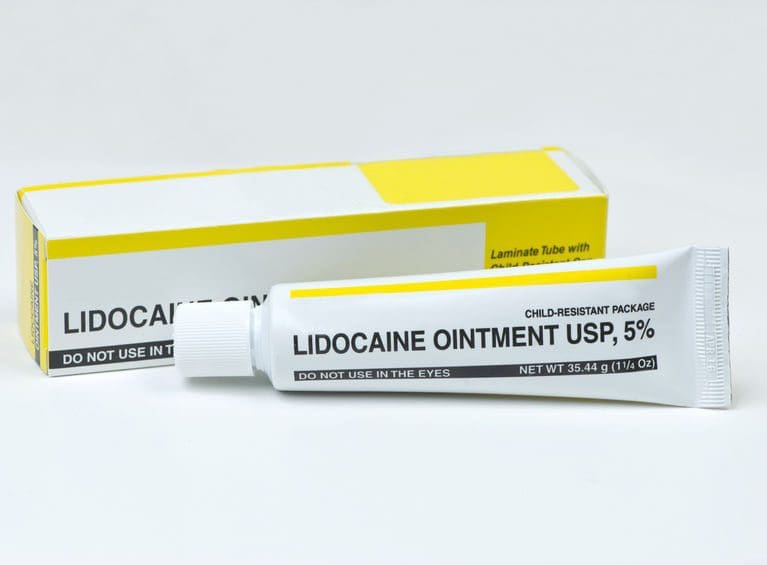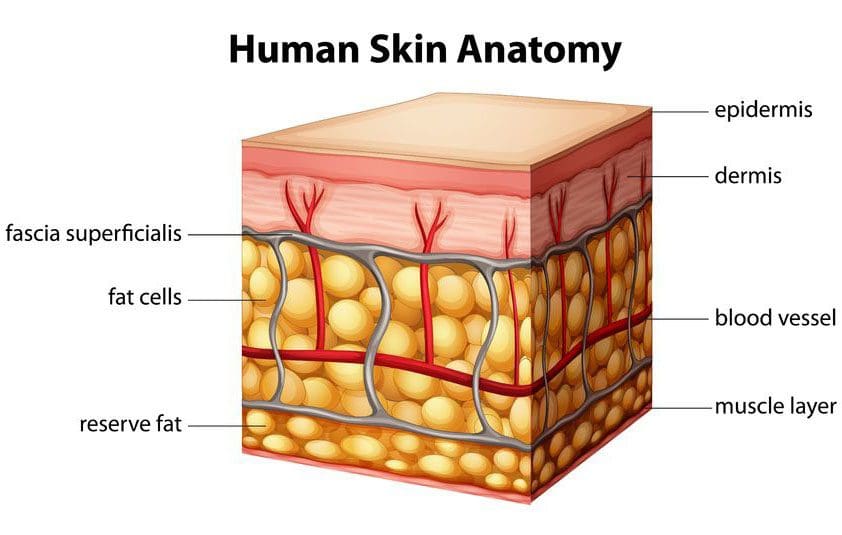There are different types of topical medications, different ways of delivery and are available for patients with back and neck pain. A physician may combine one or more types of medication for maximum relief or as a way of limiting the side effects of larger doses of only one medication. Strong dose compounds and controlled drugs are only available with a doctor’s prescription.
Medicines that help control/reduce pain include:
- Narcotics
- Anti-inflammatories
- Muscle relaxants
- Antidepressants
- Anti-anxiety medications
- Topical anesthetics

Medicines with a low potency and low risk of side effects are available at stores and local pharmacies over-the-counter. But remember medications sold over the counter without a prescription doesn’t mean they are safe to use as much as possible. Please read the label and follow the instructions. Taking higher doses, even acetaminophen e.g. Tylenol can cause liver damage. Discussing these medications with a doctor or pharmacist before purchase would be wise. Your physician should know if you plan to continue using over-the-counter medications.
Inform your physician about all the products you take including herbal remedies to decrease the risk of side effects or potential severe drug interactions. When acute pain is present, injections either intravenous or intramuscular injected into the muscles are used. For chronic pain, medications are used and are typically in pill form. Both methods have limitations and different delivery approaches may be considered. This includes inhalation or topical on top of the skin applications.
Table of Contents
Topical Pain Alleviators
These type of medications come prepared and are applied to the skin via:
- Cream
- Ointment
- Gel
- Spray
- Patch For example – Lidoderm patch
Topical medications aim to reduce inflammation and soothe nerve and muscle pain. Some are available with a doctor’s prescription and others are over-the-counter. Medication administered through the skin is becoming more popular.
Skin Cells
The skin is the largest organ of the body. It serves as water barrier protection, it regulates body temperature, controls fluid loss, and is important to homeostasis/healthy internal balance.
It is made up of many layers and is supported by a complex blood supply. The blood vessels are in a framework of connective tissue including fat and fascia that holds the tissues together. Below that layer is the bone and muscle. There are also nerve endings that relay touch, temperature, and pain signals from the skin to the spinal cord, to the brain.

Compounds have been developed to safely carry the various medicines through the skin into the blood. These compound enhancers are able to penetrate the skin by opening normally closed channels for a quick time to help the skin absorb the medication/s and then close back up.
Spine Pain
Spine physicians and pain specialists often first recommend topical pain-relievers to help relieve the symptoms of back and neck pain/conditions.
Topical medicines may be used to treat the pain associated with:
- Neck strain
- Low back strain
- Whiplash
- Muscle inflammation
- Spasms
- Osteoarthritis
- Rheumatoid arthritis
- Certain types of nerve pain
Topical Advantages
- Bases like creams, ointments, gels, and sprays make application easy.
- Symptom relief is faster than oral medicines.
- Symptoms reduce at a steady rate.
- Relief can last longer.
- Not as much medicine is needed when applied in topical form.
As the medication is diffused through the skin and enters the bloodstream, it bypasses the digestive system reducing any unwanted side effects, like an irritated stomach.
Topical Disadvantages
- Blood flows in different ways to different parts of the body. Education about the product is essential to know where to apply the product like the arm or abdomen and how often.
- Blood flow to certain parts of the body can change over time. For example, when it’s cold the blood vessels in the skin contract which decreases the absorption of the medicine, while sweating can open the pores too much and allow too much medication to be absorbed too quickly or wash it away completely.
- The skin could present a negative reaction. Therefore patients need to know what to do if an allergic or other reaction takes place.
- The skin nerves are different from the spinal nerves, so certain types of neck/back pain may not respond well to topical treatment.
- Spinal conditions/disorders deep in the body will not respond well to topical therapy.

Is it right
Are topical pain-alleviating medications the right for you? The best person to ask is your doctor or healthcare provider. Upon a final diagnosis and medical history, your doctor should offer various treatments/therapies for pain management.
Conclusion
Patches and creams can be used to deliver a wide variety of medications. These topicals are becoming popular because of their convenience and, reduction of negative side-effects.
- For individuals with muscle or tendon inflammation, applying a topical to the affected area limits the amount of medication going to other areas of the body that do not need it.
- For those that have stomach problems and find it difficult to digest anti-inflammatories, these topicals could be all they need to stay active.
- Individuals with chronic neck or back pain should discuss these medications with their pain specialist, physician or chiropractor to see if one of these topicals might work for them.
El Paso, TX Chiropractic Care Neck Pain Treatment
NCBI Resources
Everyone needs to take care of their back/spine because it is what holds us up as long as we keep it straight and strong. Strengthening the core can help prevent a weak and misaligned spine from getting worse and helps to eliminate pain.
Back safety should be priority one, as it affects all aspects of your life. Not only are you protecting your back, but are preventing future injury. We all need to pay attention to proper body positioning and body mechanics, as it will pay off in the long run.
Post Disclaimer
Professional Scope of Practice *
The information on this blog site is not intended to replace a one-on-one relationship with a qualified healthcare professional or licensed physician and is not medical advice. We encourage you to make healthcare decisions based on your research and partnership with a qualified healthcare professional.
Blog Information & Scope Discussions
Welcome to El Paso's Premier Wellness and Injury Care Clinic & Wellness Blog, where Dr. Alex Jimenez, DC, FNP-C, a board-certified Family Practice Nurse Practitioner (FNP-BC) and Chiropractor (DC), presents insights on how our team is dedicated to holistic healing and personalized care. Our practice aligns with evidence-based treatment protocols inspired by integrative medicine principles, similar to those found on this site and our family practice-based chiromed.com site, focusing on restoring health naturally for patients of all ages.
Our areas of chiropractic practice include Wellness & Nutrition, Chronic Pain, Personal Injury, Auto Accident Care, Work Injuries, Back Injury, Low Back Pain, Neck Pain, Migraine Headaches, Sports Injuries, Severe Sciatica, Scoliosis, Complex Herniated Discs, Fibromyalgia, Chronic Pain, Complex Injuries, Stress Management, Functional Medicine Treatments, and in-scope care protocols.
Our information scope is limited to chiropractic, musculoskeletal, physical medicine, wellness, contributing etiological viscerosomatic disturbances within clinical presentations, associated somato-visceral reflex clinical dynamics, subluxation complexes, sensitive health issues, and functional medicine articles, topics, and discussions.
We provide and present clinical collaboration with specialists from various disciplines. Each specialist is governed by their professional scope of practice and their jurisdiction of licensure. We use functional health & wellness protocols to treat and support care for the injuries or disorders of the musculoskeletal system.
Our videos, posts, topics, subjects, and insights cover clinical matters and issues that relate to and directly or indirectly support our clinical scope of practice.*
Our office has made a reasonable effort to provide supportive citations and has identified relevant research studies that support our posts. We provide copies of supporting research studies available to regulatory boards and the public upon request.
We understand that we cover matters that require an additional explanation of how they may assist in a particular care plan or treatment protocol; therefore, to discuss the subject matter above further, please feel free to ask Dr. Alex Jimenez, DC, APRN, FNP-BC, or contact us at 915-850-0900.
We are here to help you and your family.
Blessings
Dr. Alex Jimenez DC, MSACP, APRN, FNP-BC*, CCST, IFMCP, CFMP, ATN
email: coach@elpasofunctionalmedicine.com
Licensed as a Doctor of Chiropractic (DC) in Texas & New Mexico*
Texas DC License # TX5807
New Mexico DC License # NM-DC2182
Licensed as a Registered Nurse (RN*) in Texas & Multistate
Texas RN License # 1191402
ANCC FNP-BC: Board Certified Nurse Practitioner*
Compact Status: Multi-State License: Authorized to Practice in 40 States*
Graduate with Honors: ICHS: MSN-FNP (Family Nurse Practitioner Program)
Degree Granted. Master's in Family Practice MSN Diploma (Cum Laude)
Dr. Alex Jimenez, DC, APRN, FNP-BC*, CFMP, IFMCP, ATN, CCST
My Digital Business Card


